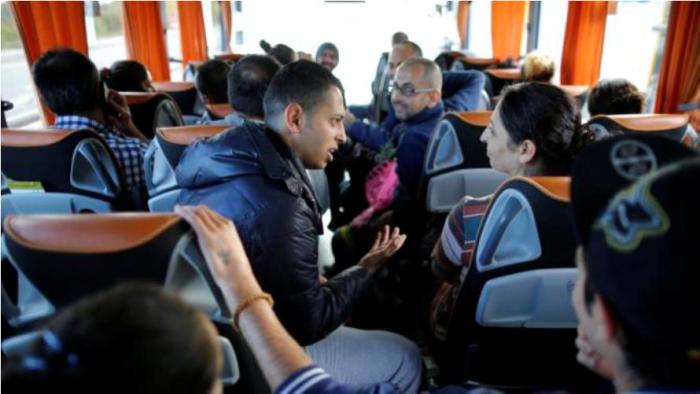Britain Asks 'Bible Trivia' Questions to Christian Refugees: 12 Apostles' Name, What Is Pentecost

A new report reveals that the questions that Britain's Home Office asks Christian and Christian convert asylum-seekers to assess their applications are akin to Bible trivia quizzes, resulting in "wrong decisions and expensive appeals."
Can you name the twelve apostles? When is Pentecost? How many books are there in the Bible? Who betrayed Jesus to the Romans? These are some of the questions the Home Office asks during assessment interviews, according to the report of an enquiry that was set up to ascertain the quality of the assessment of religion-based asylum claims in the country and the impact of the asylum procedure on the fairness and quality of decision-making.
"Whilst they may seem reasonable, this report reveals that such questions, often referred to as 'Bible trivia,' are a very poor way of assessing a conversion asylum claim and result in wrong decisions and expensive appeals," said the report called "Fleeing Persecution: Asylum Claims in the U.K. on Religious Freedom Grounds." "This is too simplistic a way to judge if an individual is, for example, a genuine convert. Furthermore, anecdotal evidence has shown that some people are learning as much as they can so they can be prepared for the Home Office interview."
The study in the U.K., where law says that religious persecution constitutes grounds for asylum, calls the assessment process "complex and challenging due to the inherently internal and personal nature of religion and belief."
The report was submitted to the All Party Parliamentary Group for International Freedom of Religion or Belief and the Asylum Advocacy Group – both informal groups of members of both Houses.
The report demonstrates that there is a disparity between Home Office policy guidelines and what is actually happening in practice.
While a lack of understanding of religion and belief is a primary cause of the disparity between good policy guidelines and practices of decision-makers within the asylum system, "such ignorance might have been formalized through unpublished 'crib sheets' given to decision-makers," the report suggests.
It also says the interviewing officers do not have sufficient knowledge of religion, In one case, the Home Office caseworker had not realized that an Anglican Church can also be an Evangelical one and found the applicant's testimony inconsistent as it did not match the church's public information shown on its website, the report points out.
The two parliamentary groups have also learnt that the focus among those working on asylum procedures regarding complex asylum cases has been towards asylum claims based on sexual orientation or gender identity and not religious persecution.
The report expresses concern that the Home Office does not disaggregate claims on different convention grounds and thus keep a record of the number of applicants seeking asylum on the grounds of religious persecution.
Language is also a barrier. In May 2016, Hamid Delrouz, an Iranian Christian convert, stated that his asylum rejections by the Home Office were helped by the fact that, in court, his interpreter was not familiar with Biblical terms including 'Book of Psalms' and 'Jeremiah' which were translated incorrectly, the report points out.
"We are witnessing the largest migration of people since the Second World War and with it the reality of increasing religious persecution and religiously-motivated violence towards those who hold different beliefs from their societies or no belief at all," the report notes. "The conflict that continues to rage in Syria and Iraq has had a devastating effect on these countries' infrastructure and their citizens as well as surrounding nations who have absorbed/taken in those fleeing the conflict. Many of those fleeing have, at some level, been targeted by non-state actor groups such as Daesh solely on the basis of their beliefs and thus their very identity."
The Islamic State terror group, also known as ISIS, ISIL or Daesh, has targeted Christians in Syria and Iraq, amounting to genocide. More than 700,000 of Syria's Christian population of 1.1 million have been displaced due to attacks by ISIS. And in Iraq, at least 125,000 Christians have fled their homes in the Nineveh Plains to the autonomous Kurdistan region.
"The number of Individuals seeking asylum on the grounds of religious persecution is not going to diminish in the coming years and it is thus one that we must grapple with and equip ourselves to fully understand so as to ensure fair hearing of cases," the report concludes.




























